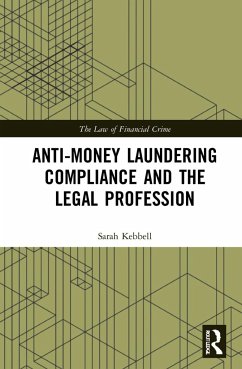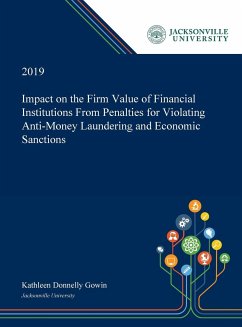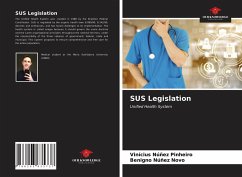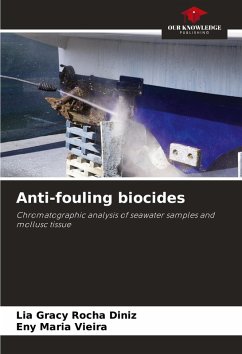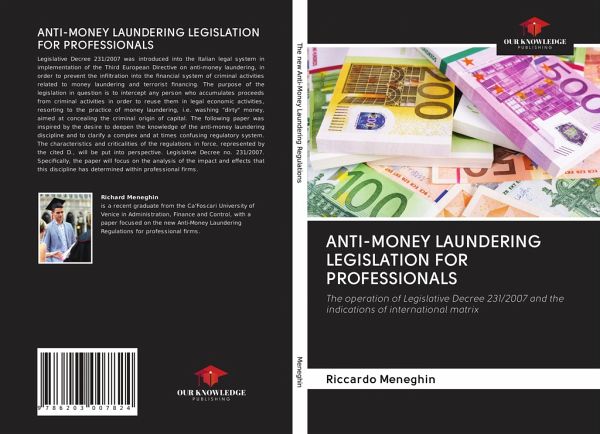
ANTI-MONEY LAUNDERING LEGISLATION FOR PROFESSIONALS
The operation of Legislative Decree 231/2007 and the indications of international matrix
Versandkostenfrei!
Versandfertig in 1-2 Wochen
25,99 €
inkl. MwSt.

PAYBACK Punkte
13 °P sammeln!
Legislative Decree 231/2007 was introduced into the Italian legal system in implementation of the Third European Directive on anti-money laundering, in order to prevent the infiltration into the financial system of criminal activities related to money laundering and terrorist financing. The purpose of the legislation in question is to intercept any person who accumulates proceeds from criminal activities in order to reuse them in legal economic activities, resorting to the practice of money laundering, i.e. washing "dirty" money, aimed at concealing the criminal origin of capital. The followin...
Legislative Decree 231/2007 was introduced into the Italian legal system in implementation of the Third European Directive on anti-money laundering, in order to prevent the infiltration into the financial system of criminal activities related to money laundering and terrorist financing. The purpose of the legislation in question is to intercept any person who accumulates proceeds from criminal activities in order to reuse them in legal economic activities, resorting to the practice of money laundering, i.e. washing "dirty" money, aimed at concealing the criminal origin of capital. The following paper was inspired by the desire to deepen the knowledge of the anti-money laundering discipline and to clarify a complex and at times confusing regulatory system. The characteristics and criticalities of the regulations in force, represented by the cited D., will be put into perspective. Legislative Decree no. 231/2007. Specifically, the paper will focus on the analysis of the impact and effects that this discipline has determined within professional firms.



